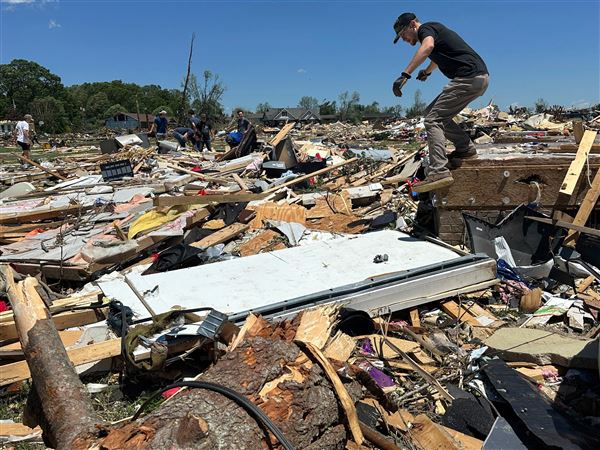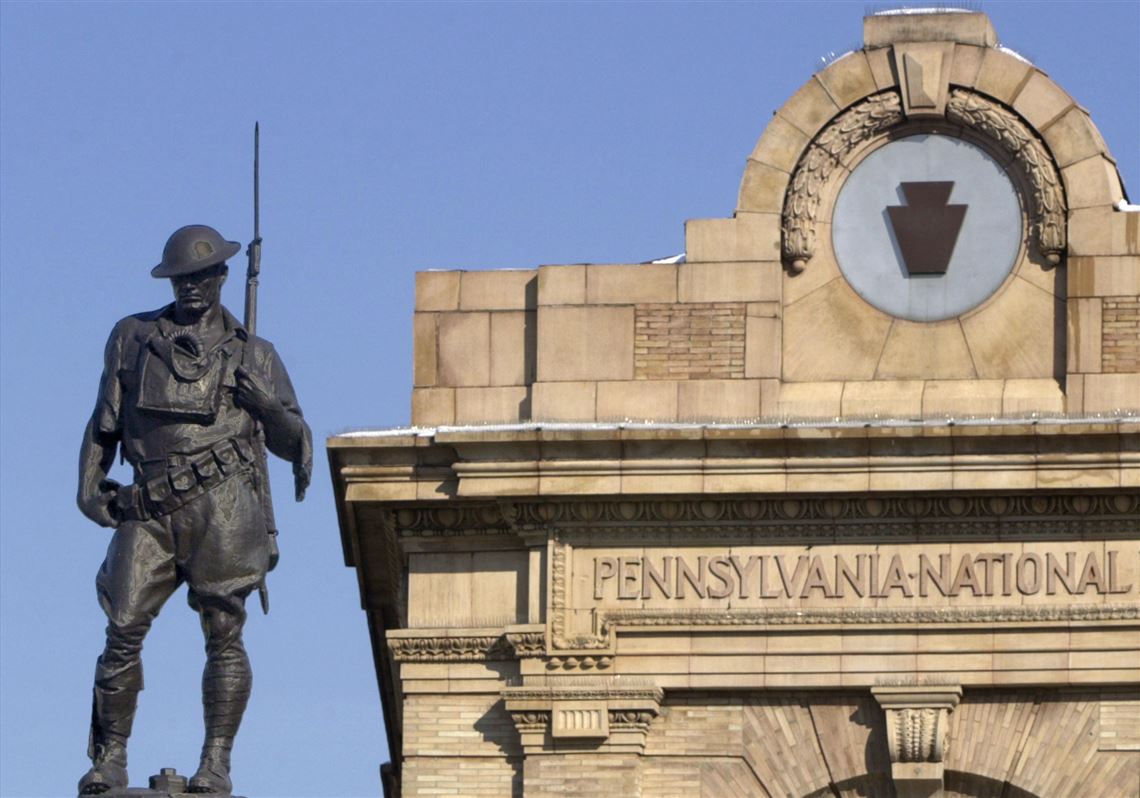Slang was as important to army life as infantry training, Hugh M. Durigan told readers of The Pittsburgh Gazette Times on Oct. 7, 1917. Durigan, a reporter for the paper 100 years ago, was writing a series of daily feature stories about life for Allegheny County soldiers at Camp Lee, Va.
“There is many a mother in Western Pennsylvania tonight who might rise in righteous indignation against the ‘terrible Army’ if she could hear her son - a college man perhaps — indulging in expressions of this sort,” Durigan wrote. He then provided an extended example of camp lingo: “I don’t want to bellyache, but if Holy Joe should pull the requiescat stuff over that Non-Com who shoots us full of slum, stars and stripes and black strap, here’s one doughboy that would be willing to turn a funeral into a jubilee.”
The Gazette Times provided a translation: “I don’t want to complain, but if the chaplain should preach a sermon over the remains of that mess sergeant who feeds us a stew of meat, potatoes and onions - mostly potatoes and onions - beans and coffee every other meal, here’s one infantryman who wouldn’t be sorry.”
Camp Lee was a U.S. Army training facility east of Petersburg where troops prepared for European service in what was called The Great War. Trainees numbered about 14,000 in the fall of 1917, including almost 500 draftees from Allegheny County.
“Slang is taught to the soldier of the National Army for the same reason that he is encouraged to participate in athletic games and entertainment in camp,” Durigan wrote. “Military authorities believe it enlivens army life just as it enriches language.”
Some of the words and phrases Durigan writes about have lasted. An army doctor can still be called a “saw bone” and the newest recruit is still a “rookie.” Other terms have changed meaning: While a World War I dumpling was called a “sinker,” that slang word is more likely to mean a doughnut today. A “gold brick” was a homely girl in 1917 but during World War II it referred to a soldier who sought to avoid work.
“To the folks back home it may be vulgarity to the nth degree, but to the initiated it is only Army slang,” The Gazette Times reported. “There is an appealing democracy in such an expression as ‘Bunkie,’ they say, which makes it sound more pleasant than “roommate’ ...”
Len Barcousky: lbarcousky@gmail.com. Mr. Barcousky’s newest book, “Hidden History of Pittsburgh,” is published by The History Press.
Hugh M. Durigan’s guide to doughboy (infantryman) slang
In a story published on Oct. 7, 1917, Gazette Times reporter Hugh M. Durigan provided readers with examples of how soldiers talked with their barracks buddies:
“army butter” — apple sauce
“buck private” — a “scrappy” private
“butcher” — company barber
“canned horse” — mess hall beef
“cit” — a civilian
“cits” — civilian clothes
“coffee cooler” — a soldier always looking for an easy job
“dough puncher” — army baker
“flag waver” — a person who exploits patriotism for personal gain
“goaty” — an awkward or ignorant soldier
“gold fish” — mess hall salmon
“guardhouse lawyer” — talkative adviser to soldiers in trouble
“orderly bucker” — a soldier seeking to become the commanding officer’s orderly
“pills” — a hospital steward
“queen” — a pretty girl
“sky scout” — another term for chaplain
“sow belly” — bacon
“wagon soldier” — soldier in a field artillery unit
“wind jammers” — army band musicians
First Published: October 22, 2017, 4:00 a.m.

















